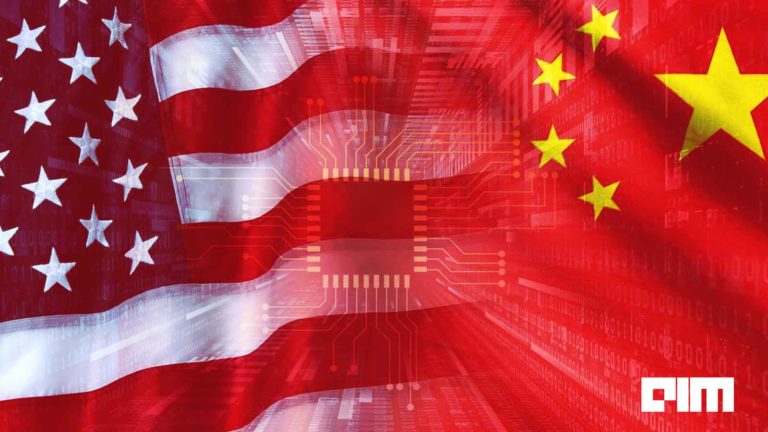At AWS re:Invent, the hyperscaler unveiled the next generation of two AWS-designed chip families — AWS Graviton4 and AWS Trainium2 — bringing improvements in price performance and energy efficiency across various customer workloads.
Only a few weeks prior to the AWS announcement, Microsoft, which competes with AWS in the cloud space, also announced two homegrown chips—Microsoft Azure Maia 100 AI Accelerator and Azure Cobalt 100 CPU. Interestingly, both AWS and Microsoft’s homegrown chips will be developed by Taiwan Semiconductor Manufacturing Company Limited (TSMC).
The Taiwanese semiconductor giant also manufactures chips for Google’s Tensor Processing Units (TPU), which the tech giant announced at Google I/O 2016. Moreover, Google is also working on its own custom chip to power its Pixel smartphones and will replace Samsung with TSMC for chip manufacturing.
Reportedly, Apple, the most popular smartphone maker, is also working towards introducing a host of generative AI features in iOS 18, again, built on TSMC’s N3E 3-nanometer node.
Revenue from AI to skyrocket
TSMC’s advanced manufacturing processes enable the production of chips with increased computational capabilities, meeting the requirements of generative AI workloads.
With a market cap of USD 511.12 billion as of December 2023, TSMC is the world’s 12th most valuable company. At present, approximately 6% of TSMC’s overall revenue ( USD 73.86 billion in 2022) is derived from AI. Nevertheless, the company envisions this figure doubling within the next four to five years. TSMC anticipates a substantial compound annual growth rate (CAGR) of nearly 50% in the AI sector from 2022 to 2027.
The recent developments by big tech underscores how important TSMC has emerged in the AI ecosystem. Not to forget, NVIDIA also relies on TSMC for the fabrication of its Graphics Processing Units (GPUs), which became the most sought-after product in the AI world this year. Funnily enough, Intel’s Gaudi2 processors, which compete with NVIDIA H100, are also based on TSMC’s 7 nm processors.
To keep up with the demand, TSMC is also planning to invest USD 2.87 billion to build a new plant that will handle the advanced packaging of high-performance semiconductors necessary for generative AI.
Moreover, despite having fabrication units in Taiwan, TSMC has also announced numerous expansion plans. In Arizona, US, TSMC is building a second semiconductor factory, with an increased investment from USD 12 billion to USD 40 billion. The new facility, known as Fab 21, is expected to start chip production on TSMC’s advanced N3 process technologies by 2026.
Recent reports indicate that TSMC is considering the establishment of a third fabrication facility in the US to develop 2 nm and 1 nm technology. Similar expansion plans are also being considered in Japan. Moreover, a second fab in Europe is also being evaluated.
Dependence on TSMC- A dangerous precedent?
TSMC’s 3 nm technology is highly important for AI chip companies. For AI applications, where processing large amounts of data with high precision is crucial, TSMC’s 3 nm process enables the development of more powerful and efficient AI chips as it allows for more transistors to be packed into a chip, resulting in improved performance, energy efficiency, and overall capabilities.
TSMC is one of the few companies in the world that can reliably build chips at the leading edge of semiconductor technology, including advanced AI chips. The company has already started high-volume production of its 3 nm technology in 2022, making it the industry’s most advanced semiconductor process.
However, the significant dependence of the AI industry on TSMC for chip manufacturing introduces potential risks reminiscent of previous challenges faced by industries relying heavily on specific suppliers.
For example, the industry heavily depends on NVIDIA for its GPUs. However, a supply shortage left numerous companies in a scramble to acquire these GPUs. Could the AI sector’s reliance on TSMC set a similar precedent, given the semiconductor industry already heavily relies on Taiwan to meet global chip demands?
Notably, Samsung is the only other company with the 3 nm technology. However, TSMC holds a 60% market share of the third-party chip manufacturing business compared to Samsung Electronics, which holds 12%.
Interestingly, Qualcomm, which is looking to disrupt the smartphone industry with its AI processors, earlier hinted at a dual-foundry strategy with TSMC and Samsung manufacturing simultaneously. However, Qualcomm has officially declared its decision not to enlist Samsung for its upcoming processors, emphasising once more the significance of TSMC in the AI domain.


























